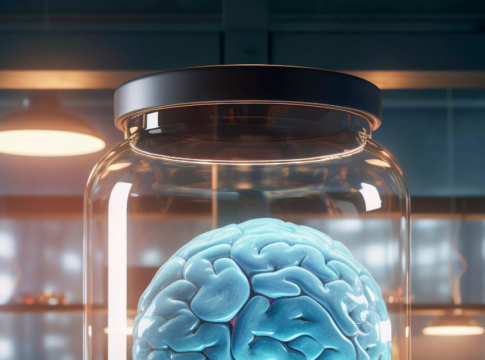The concept of the gut-brain axis has revolutionized our understanding of the connection between digestive health and mental well-being. This bidirectional communication pathway between the gut and the brain highlights the intricate relationship between what happens in your digestive system and how you feel mentally and emotionally. Research into the gut-brain axis has unveiled fascinating insights into how gut bacteria influence mood, cognitive function, and overall mental health.
Understanding the Gut-Brain Axis
The gut-brain axis refers to the complex network of interactions between the gut microbiota (the community of microorganisms living in the digestive tract) and the brain. This connection operates through several mechanisms, including:
- Neural Pathways:
The vagus nerve, a major component of the parasympathetic nervous system, connects the gut and the brain. This nerve transmits signals between the digestive system and the brain, influencing mood and emotional states. - Chemical Signaling:
Gut bacteria produce various chemicals, such as neurotransmitters and metabolites, that can affect brain function. For instance, gut microbes produce about 95% of the body’s serotonin, a neurotransmitter that plays a critical role in mood regulation. - Immune System Modulation:
The gut microbiome interacts with the immune system, which in turn affects brain health. A balanced microbiome supports a healthy immune response, while dysbiosis (an imbalance in gut bacteria) can lead to inflammation, which has been linked to mood disorders and cognitive impairments.
How Gut Bacteria Influence Mental Health
- Mood Regulation:
The gut microbiota plays a significant role in regulating mood. Research has shown that imbalances in gut bacteria can contribute to conditions like depression and anxiety. Probiotics, which are beneficial bacteria found in foods like yogurt and fermented vegetables, have been shown to improve mood and reduce symptoms of depression in some studies. - Cognitive Function:
Gut health can impact cognitive functions such as memory, attention, and learning. Some studies suggest that gut microbiota can influence brain structure and function through the production of neuroactive compounds. For example, certain bacterial metabolites can cross the blood-brain barrier and affect neurotransmitter levels, which in turn influences cognitive processes. - Stress Response:
The gut-brain axis also plays a role in the body’s stress response. Chronic stress can alter the gut microbiome, leading to dysbiosis and a heightened inflammatory response. This can exacerbate mental health issues, including anxiety and mood disorders. Managing stress through mindfulness, exercise, and a balanced diet can help maintain a healthy gut microbiome and support mental well-being.
Enhancing Gut Health for Better Mental Well-Being
- Balanced Diet:
Consuming a diet rich in fiber, prebiotics (found in foods like garlic, onions, and bananas), and probiotics can promote a healthy gut microbiome. A diverse diet supports microbial diversity, which is beneficial for mental health. - Avoiding Excessive Antibiotic Use:
Antibiotics can disrupt the balance of gut bacteria, leading to dysbiosis. When necessary, use antibiotics as prescribed and consider incorporating probiotic-rich foods to help restore gut health. - Regular Exercise:
Physical activity has been shown to positively affect the gut microbiome and reduce symptoms of depression and anxiety. Regular exercise supports a healthy gut-brain axis by promoting beneficial bacterial growth and reducing inflammation. - Mindfulness and Stress Management:
Practices such as meditation, deep breathing exercises, and adequate sleep can help manage stress and support a balanced gut microbiome. Reducing stress levels contributes to overall mental health and supports the gut-brain axis.
Conclusion
The gut-brain axis highlights the profound connection between gut health and mental well-being. By understanding how gut bacteria influence mood and cognitive function, we can take proactive steps to support our mental health through diet, lifestyle choices, and stress management. A balanced gut microbiome is essential for maintaining a healthy mind, demonstrating that taking care of our digestive system is crucial for overall mental and emotional well-being.
